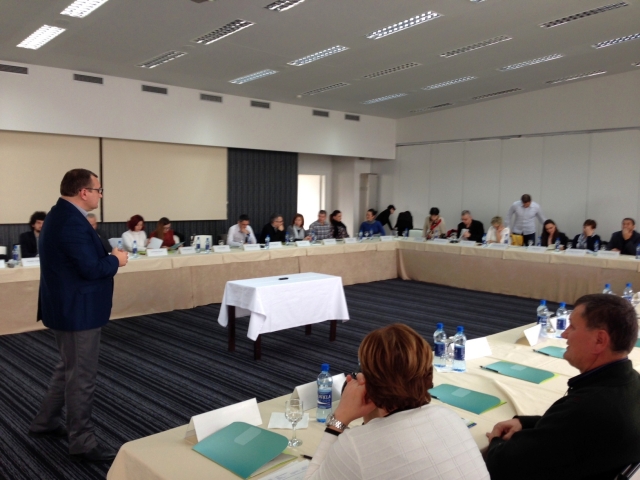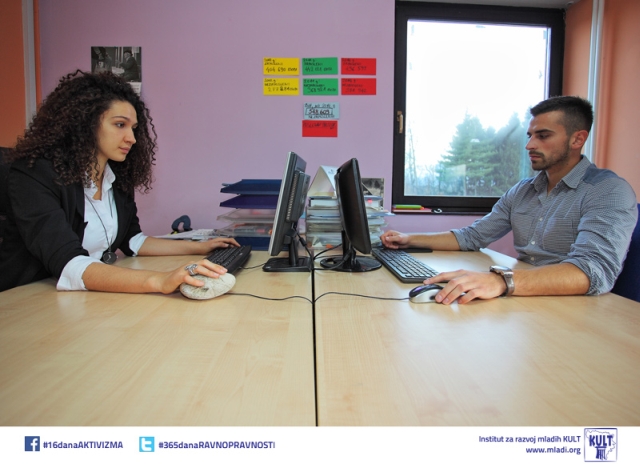Twenty four years ago, the Center for Women’s Global Leadership at Rutgers University in New Jersey gathered twenty three women of different professional interests and cultural context from Peru, Costa Rica, Venezuela, Pakistan, Palestine, Brazil, Nigeria, Czechoslovakia, Trinidad and Tobago, Sweden, Ireland, India, Canada, Zambia, Fiji, Korea and other countries around the world at the first Women’s Global Leadership Institute. Their experiences in relation to the problem of gender-based violence against women show that they have a common need for strategic global action against widespread social tolerance of this kind of violence, their ignoring a problem that requires political commitment and lack of accountability to the state recognition, regulation and punishment of violence against women. At that time, for almost a decade there was a first internationally binding instrument to protect the human rights of women to live free from violence, established by the Convention on the Elimination of All Forms of Discrimination against Women (CEDAW), which recognized the important field of protection of women’s human rights. However, it became clear that CEDAW is not in itself sufficient, because it was not accompanied by stronger action by the United Nations or female global activist movement.
It is necessary to ensure continuous activity that would allow pointing to the systemic nature of gender-based violence against women, its relationship to patriarchy, militarism, discrimination and oppression against women, and what is most important to point out and recognize that gender-based violence is a violation of women’s human rights. Therefore, activists gathered around the Institute proposed launching the 16 Days Campaign that will link important dates and open space for action at the United Nations system, but also around the world, regional, national and local levels, according to the governments and communities to engage in processes aimed on preventing and combating violence against women
The first important action within the 16 Days of Activism Against Gender Violence, which globally collected over a million signatures of support, without the help of Facebook, Twitter, and other social networks, is the petition of the Committee for the preparation of the UN Conference on Human Rights held in 1993 in Vienna demanded that the agenda comprehensively finds the issues of protection of women’s human rights, as well as to recognize that gender-based violence against women is a violation of human rights. The action continues in the period before and after the Fourth World Conference on Women held in Beijing in 1995 and continues to live on.
Each year between 25 November, International Day Against Violence Against Women, and December 10, International Human Rights Day, thousands of activists around the world use important dates to point to the systemic nature of gender-based violence against women. Activities within the 16 Days of Activism are extremely politically important because continuously indicate the primary responsibility of States which must not only enact laws and policies that will formally protect women’s human rights, but must also ensure their application in practice through judicial protection, education, social and health care, gender-responsive planning public budgets and other measures that will really ensure zero tolerance for gender-based violence against women in the private and public spheres.
The activists of the civil society in Bosnia and Herzegovina for many years point the public to the dark figure of gender-based violence hidden, unreported and unprosecuted. BiH absurdly stands out as a leading country in the region in terms of establishing mechanisms for the protection of equality between men and women, while in reality the government institutions at all levels essentially failed to suppress or to prevent this type of violence. On the eve of another 16 Days of Activism Against Gender Violence in 2014, which is undoubtedly drastically different from that of the election two months ago, because it is the fight for women’s human rights and not a position of power, it is important to point out that in Bosnia and Herzegovina there is still no single database on any form of gender-based violence against women, not only at the state level, but not at other levels of management. Therefore, it is objectively impossible to track the incidence, growth and decline of various forms of violence, and therefore the plan sustainable public policies that ensure effective and gender-sensitive care and support to women survivors of violence.
Although important, the adopted laws and public policies are not in themselves evidence of progress. It is essential that political leaders at all levels to recognize these problems as political priorities, to clearly say that a lot of the usual rules of forgiveness, impunity, that all laws are equally important and that socially and politically tolerated violence against women in Bosnia and Herzegovina stops. That it will be, not only must be sanctioned. That women will be, not only must be protected.
And no matter how much the politicians want it, gender-based violence against women will not be solved with the white ribbons that will be, once a year, put on the lapel in front of the press. It just is not enough, and it never is enough. Their responsibility for women’s human rights is much longer than sixteen days of the campaign, new ratifications of international standards and declarative commitment to gender-based violence is not part of everyday life for most women in Bosnia and Herzegovina.
25 November is the International Day against violence against women, and women, as every year, go to the streets to demand accountability and point out that they are not protected and free.
Freedom is not where violence is far from over with the country talking about the form and the actual lives are held quiet.
Enough.
Author: Aleksandra Petri?
_____
Aleksandra Petri? is feminist and activist for women’s human rights, with many years of experience working in civil society organizations and the institutional development programs related to women’s human rights, gender equality and the situation of young people. She worked as a researcher, analyst, consultant for local and international NGOs and government institutions in the region of former Yugoslavia. Aleksandra has an MA in International Human Rights Law at the Josef Korbel School of International Relations, University of Denver, USA, and since 2003 is working in the Foundation United Women Banja Luka, currently at the position of Executive Director.
About the Campaign
The campaign begins with the Orange Day in prevention of violence against women and girls marked on each 25th of a month. The Orange Day has with the UN Secretary General been contributing to raising awareness of youth and their sensibility towards the gender-based violence problem whose victims are 98% times female, and their active involvement in containing and preventing this form of human rights and freedoms violation.
The Institute for Youth Development KULT is advocating a society with full participation of both genders in all spheres of life. The disbalance of social influence of men and women means reduction in many possibilities of any society. The Institute believes that the growth impulse youth possess a condition for social changes. The Institute implements this year’s campaign with the support of the International Olof Palme Centre.















Leave a comment